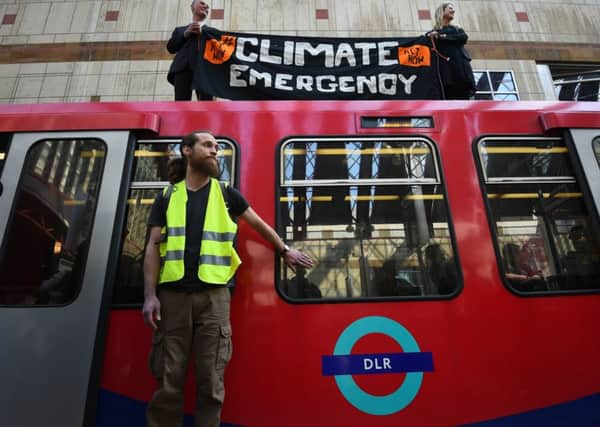CoI cleric: We face a climate catastrophe, and now my eyes are open to it


The recent report from the Intergovernmental Science-Policy Platform on Biodiversity and Ecosystem Services was the latest warning.
The 1,800-page document was remarked upon for the starkness of its analysis, its 40-page summary having been described by the BBC’s Environment correspondent, Matt McGrath, as “the most powerful indictment of how humans have treated their only home”, while referring to the finding that one million animal and plant species now face extinction.
Advertisement
Hide AdAdvertisement
Hide AdAll parts of nature are interdependent, we are told, and if parts of nature are removed it is likened to taking bricks out of houses. Eventually the structure collapses.
The churches are also involved in this whole climate change debate, as is witnessed by the work of the project Ecocongregation Ireland, initiated by the Church in Society Forum of the Irish Inter-Church Meeting.
The Church of Ireland activist, Co Armagh man Stephen Trew, runs his own blog on the subject, TrewsNews, and frequently tweets on the issues.
However, this whole subject was raised to a new level for me when I recently heard professor of green political economy at Queen’s University, John Barry [formerly the joint leader of the NI Green Party], address the Irish Council of Churches.
Advertisement
Hide AdAdvertisement
Hide AdSpeaking to me afterwards for this column, Prof Barry pointed to the recommendation of the Intergovernmental Panel on Climate Change (IPCC) that global warming be limited to 1.5C by 2030 (the IPCC is the United Nations’ body for assessing climate change science).
Asked what the consequences of not meeting the 2030 deadline would be, he said there would be more water crises, more famines, more displaced people, massive changes in weather, flooding, storm surges, all leading to “runaway” climate change, with the planet simply “doing its own thing”.
He said society needs to move rapidly away from the use of fossil fuels, such as coal, gas and oil, in areas like industrial processes, transport, and food production.
The QUB academic explained that the problem with food systems is so much energy is needed to deliver food “from farm to fork”.
Advertisement
Hide AdAdvertisement
Hide AdAs far as sceptics about climate change are concerned, Prof Barry is clear, saying: “I find it very hard to see any reason to doubt the science.”
While it is true that some countries are worse actors than others in terms of ultimately harmful emissions, Prof Barry said that there cannot be a level ‘playing field’ if the global south is to develop, adding that different countries are at different stages and that the developed world must make sacrifices in order to help other countries forward.
He also referred to “cultural, ethical and democratic aspects” of the climate change situation and told me that “our democracies have become corrupted by money and power and carbon”, adding: “We don’t know who funds parties in Northern Ireland. There needs to be full transparency.”
The argument for not disclosing sources of donations because of possible threats if names were identified is “exaggerated”, he said, while accepting that it had been a consideration during the Troubles.
Advertisement
Hide AdAdvertisement
Hide AdWhile ultimately it is up to governments to take action, it is certainly the case that individuals can set the right trend by adopting a greener lifestyle to protect creation.
l Canon Ian Ellis is former editor of the Church of Ireland Gazette